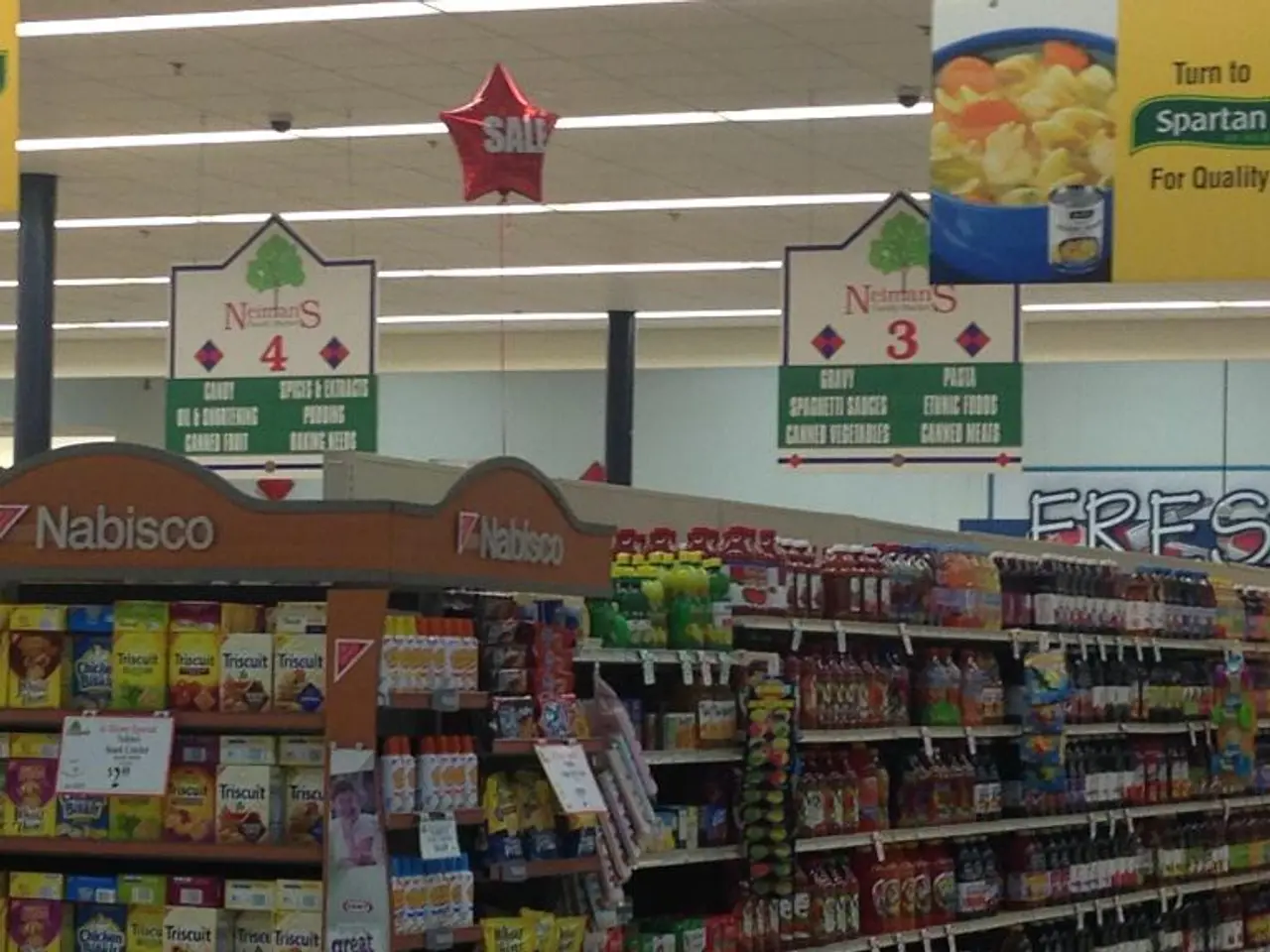Rapidly growing short-term rental market grapples with a substantial $2.3 billion food waste issue
=====================================================================
A new study from Ohio State University, published in the journal Waste Management, reveals that vacationing Americans waste more than $2.3 billion of food each year [1]. Short-term rental hosts can play a significant role in reducing this waste and promoting sustainability.
Online platforms might flag hosts providing information about food waste reduction as "sustainable hosts" [1]. Currently, only 21% of hosts provide information on donating or composting uneaten food [2]. However, more than 40% of survey respondents said they were "very interested" in getting information on donating uneaten items at the end of their stay [2].
One key strategy is informing guests about food waste reduction. Hosts can add simple instructions in the rental information booklet about local composting facilities or where guests can donate uneaten food [1]. Providing facilities for composting and recycling is another crucial step. Setting up clearly labeled, color-coded bins for compost, recycling, and trash helps guests separate their waste properly [2].
Hosts can also use sustainable supplies. Avoiding single-use plastics by offering reusable utensils, cups, and bulk dispensers for condiments lowers waste production at the source [2][4]. Using energy-efficient appliances can also reduce the overall environmental impact of food preparation [4].
Communicating sustainability practices is essential. Hosts who highlight their recycling policies and sustainable practices in their listings and during guest check-in can motivate guests to participate in waste reduction efforts [4]. Encouraging guests to take leftovers home or donate food is another effective method [1].
The report suggests that property hosts could provide information or interventions to help guests save money by purchasing less food that goes uneaten and reducing organic waste [2]. On average, the value of food wasted per trip equates to about 5.1% of the nightly rental fee of a short-term peer-to-peer rental accommodation [3].
The segment of travelers who are willing to take steps to reduce food waste if provided an easy solution is growing [2]. Lead author Brian Roe stated that hosts might see this as a valued attribute of their guests' experience, potentially earning them a certification that could lead to a higher occupancy rate or rental charge [1].
By combining guest education, infrastructure for waste separation, sustainable supplies, and communication, short-term rental hosts can effectively minimize food waste and promote sustainability on platforms like Airbnb and VRBO [1][2][4].
References
- Ohio State University, "Vacationers waste $2.3 billion in food each year, new study shows"
- The Conversation, "How short-term rental hosts can reduce food waste"
- The New York Times, "How to Reduce Food Waste in Short-Term Rentals"
- The Guardian, "How to reduce food waste when renting a holiday home"
- Short-term rental hosts can utilize technology to implement environmental-science practices, such as providing instructions for local composting facilities and offering sustainable supplies like reusable utensils.
- By incorporating business strategies like communication and certification for sustainable practices, hosts can attract food-and-drink-conscious customers who prefer industry leaders committed to reducing waste.
- Beyond the vacation rental itself, hosts can also encourage their guests to adopt sustainable lifestyles by recommending eco-friendly food-and-drink establishments.
- Hosts can approximate the financial savings they achieve from food-waste reduction and present it as a win-win for both the environment and their own financial plans in the finance sector.




